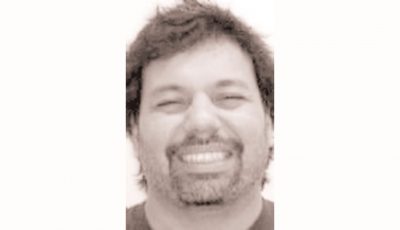Bonk!
This week I heard a number of radio spots featuring various experts offering predictions for 2018.
I’ll admit that I don’t get as excited about predictions as I used to. The more gray hair I get, the more I realize the limitations of predictions and how our fates are often driven by events that either are, or at least might as well be, random.
With that in mind I’ve seen that being prudent about the future, and being right about the future, aren’t necessarily the same thing.
For example, I used to analyze debt derivatives for a company that hedged much of its exposure to interest rate changes. The company had layers of debt that were initially issued with floating rates. The essence of the gig was that the company economists (there were two of us) had no idea where interest rates were headed, and we were also vulnerable to the risks of rising rates.
In essence, as we devised hedging strategies, we weren’t paid to predict, at least in the soothsayer manner that people often associate with economists. By contrast, we were paid, in a sense, to un-predict.
We knew how to not know. In fact, knowing how to not know is the most important thing I know.
In normal life, but on a vastly more simplified scale, we do the same thing when we buy insurance. Since we can’t predict the future, we pay a premium to mitigate (to some extent) the downside of unfavorable events.
And, also back in normal life, I think it’s easy for us to worry about events and forecasts to a degree that exceeds our ability to act on them. Listening to predictions can give us a sense of engagement in the bigger picture, which, of course, is natural. Conjecture about worldly events seems like a worldly science, but is this always the art of worldly wisdom?
If somebody with a crystal ball told you (correctly, somehow) that some important nation’s (pick your favorite important nation) Gross Domestic Product was, say, going to shoot up by 12 percent, or fall by 12 percent (take your pick; up or down), in 2018, what could you really do about it? As dramatic as those moves would be in the economics context, there’s not much that most folks could really do.
After all, either way, the rent is still due.
And the car needs tires. You’re wondering if you can get away with buying two right now and getting the other two in a month or so. And, for that matter, you’re wondering if Saipan is paved with sandpaper because it sure grinds down your rubber.
Oh, and, don’t forget, you’ve got a 2:30 dental appointment to keep.
That’s how life goes. As John Lennon famously observed, “Life is what happens to you while you’re busy making other plans.”
I’d offer a corollary, “Life is what bonks you on the head when you’re reading forecasts that have nothing to do with what bonked you.”
Think about the worst things that have ever happened to you. I’ll be that many, even most, came from out of the blue. Take a tally. Have your buddies do the same. What do you come up with?
This would make a good happy hour discussion, espeically if the alternative is hearing you brag about all the cool holiday presents you’ve been buying. Me, I haven’t come up with much this year and I’m sick of thinking about it.
But last week I did come up with one suggestion, a book. It’s The Dancing Wu Li Masters: An Overview of the New Physics, by Gary Zukav.
If you like to contemplate randomness this book looks at it from the persepctive of quantum mechanics.
In that realm the behavior of sub-atomic particles is downright spooky. In some cases they seem to communicate with each other and array themselves based on “probability waves.” The world of cause and effect, of what we see and what we don’t see, of what we know and what we don’t know, of what’s really random and what just looks that way, well, it’s engrossing. Nature, it seems, doesn’t follow human logic.
And thus comes the big question. It applies to the smallest sub-atomic particles, the biggest economies, the most cordial of newspaper columnists, and the warmest of islands: Do we see the world as it really is, or is our perspective so limited that we’re basically clueless?
With every passing year, I’m more convinced that the answer is “bonk.”



























